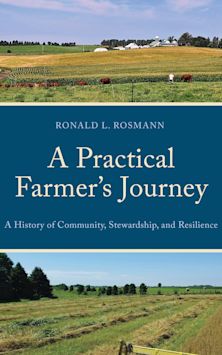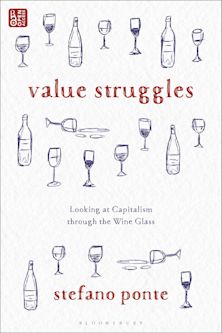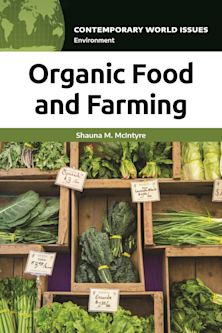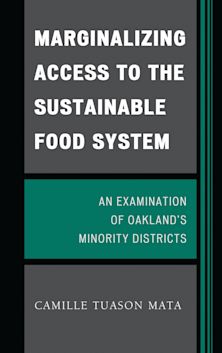Women Redefining the Experience of Food Insecurity
Life Off the Edge of the Table
Women Redefining the Experience of Food Insecurity
Life Off the Edge of the Table
Description
Women Redefining the Experience of Food Insecurity: Life Off the Edge of the Table is about understanding the relationship between food insecurity and women’s agency. The contributors explore both the structural constraints that limit what and how much people eat, and the myriad ways that women creatively and strategically re-structure their own fields of action in relation to food, demonstrating that the nature of food insecurity is multi-dimensional. The chapters portray how women develop strategies to make it possible to have food in the cupboard and on the table to be able to feed their families. Exploring these themes, this book offers a lens for thinking about the food system that incorporates women as agentive actors and links women’s everyday food-related activities with ideas about food justice, food sovereignty, and food citizenship. Taken together, the chapters provide a unique perspective on how we can think broadly about the issue of food insecurity in relation to gender, culture, inequality, poverty, and health disparity. By problematizing the mundane world of how women procure and prepare food in a context of scarcity, this book reveals dynamics, relationships and experiences that would otherwise go unremarked. Normally under the radar, these processes are embedded in power relations that demand analysis, and demonstrate strategic individual action that requires recognition. All of the chapters provide a counter to caricatured notions that the choices women make are irresponsible or ignorant, or that the lives of women from low-income, low-wealth communities are predicated on impotence and weakness. Yet, the authors do not romanticize women as uniformly resilient or consistently heroic. Instead, they explore the contradictions inherent in the ways that marginalized, seemingly powerless women ignore, resist, embrace and challenge hegemonic, patriarchal systems through their relationship with food.
Table of Contents
Tables
Foreword
June Nash
Acknowledgments
Part I: Introduction
Conceptualizing Food Insecurity and Women’s Agency:
A Synthetic Introduction
Janet Page-Reeves
Part II: The Dimensionality of Food Insecurity
1. Another Time of Hunger
Teresa Mares
2. Women, Welfare and Food Insecurity
Maggie Dickenson
3. ‘I took the lemons and I made lemonade’:
Women’s Quotidian Strategies and the
Re-Contouring of Food Insecurity in a Hispanic
Community in New Mexico
Janet Page-Reeves, Amy Anixter Scott,
Maurice Moffett, Veronica Apodaca, and
Vanessa Apodaca
4. Negotiating Food Security along the U.S.-Mexican
Border: Social Strategies, Practice, and Networks
among Mexican Immigrant Women
Lois Stanford
Part III: Disparities in Access to Healthy Food
5. ‘La Lucha Diaria’: Migrant Women in the
Fight for Healthy Food127
Megan Carney
6. Women’s Knowledge and Experiences Obtaining
Food in Low-Income Detroit Neighborhoods
Daniel J. Rose
7. Is the Cup Half Empty or Is It Half Full?
Economic Transition and Changing Ideas of what
is Food Insecurity in Rural Costa Rica
David Himmelgreen, Nancy Romero Daza,
Allison Cantor and Sara Arias-Steele
Part IV: Women’s Agency and Contested Practices
8. Salvadoran Immigrant Women and the Culinary
Making of Gendered Identities: “Food Grooming”
as a Class and Meaning-Making Process
Sharon Stowers
9. The Social Life of Coca-Cola® in Southern
Veracruz, Mexico: How Women Navigate Public
Health Messages and Social Support through
Drink
Mary Alice Scott
10. ‘Women not like they used to be’:
Food and Modernity in Rural Newfoundland
Lynne Phillips
Part V: Empowerment and Challenging the System
11. Labor and Leadership: Women in U.S.
Community Food Organizing
Christine Porter and LaDonna Redmond
12. ‘I would have never….’: A Critical Examination of
Women’s Agency for Food Security Through
Participatory Action Research
Patricia Williams
Index
About the Contributors
Product details
| Published | Jul 03 2014 |
|---|---|
| Format | Ebook (Epub & Mobi) |
| Edition | 1st |
| Extent | 324 |
| ISBN | 9780739185278 |
| Imprint | Lexington Books |
| Illustrations | 2 BW Illustrations, 4 Tables |
| Publisher | Bloomsbury Publishing |


































